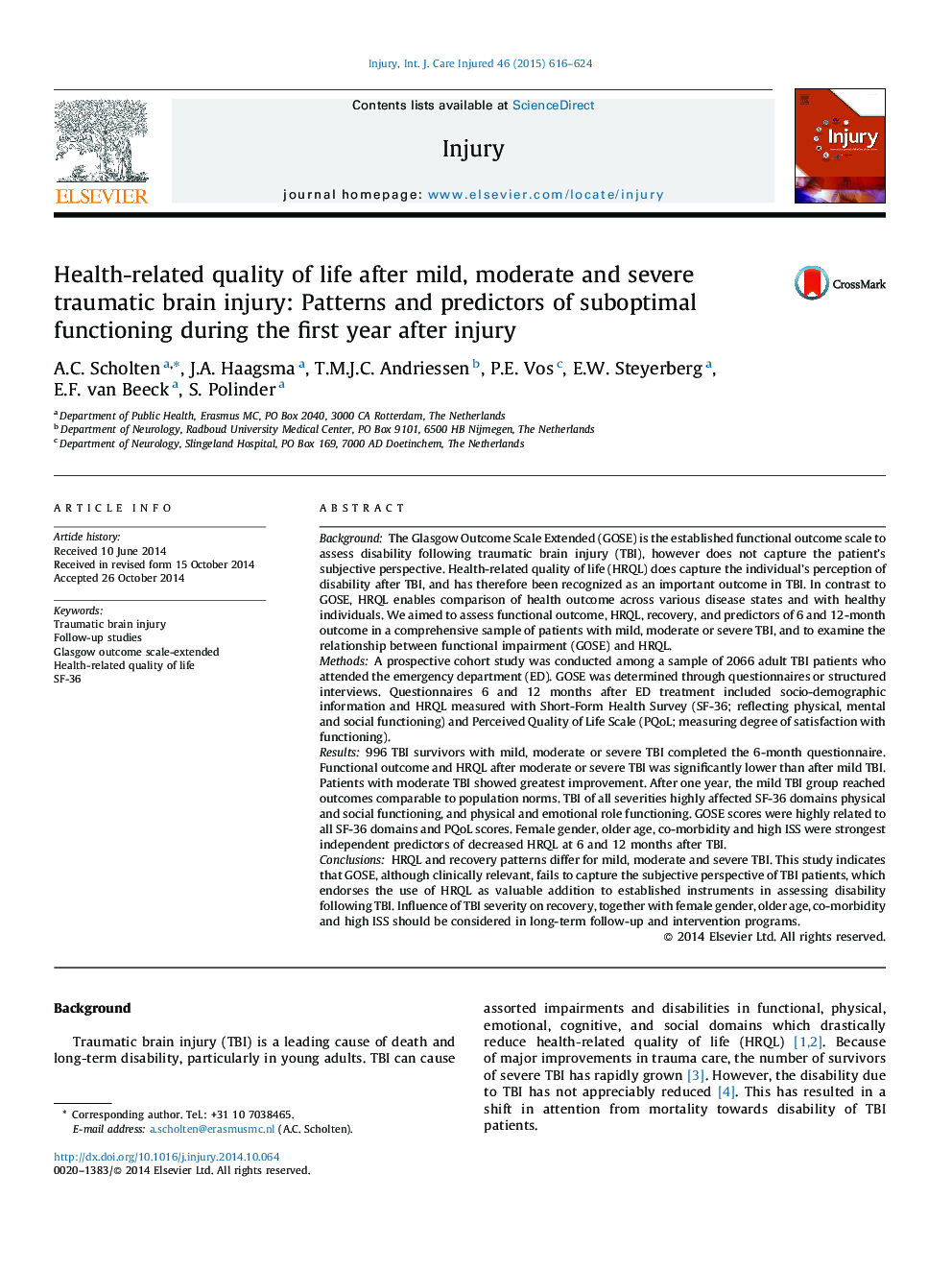| کد مقاله | کد نشریه | سال انتشار | مقاله انگلیسی | نسخه تمام متن |
|---|---|---|---|---|
| 3239054 | 1205981 | 2015 | 9 صفحه PDF | دانلود رایگان |
BackgroundThe Glasgow Outcome Scale Extended (GOSE) is the established functional outcome scale to assess disability following traumatic brain injury (TBI), however does not capture the patient's subjective perspective. Health-related quality of life (HRQL) does capture the individual's perception of disability after TBI, and has therefore been recognized as an important outcome in TBI. In contrast to GOSE, HRQL enables comparison of health outcome across various disease states and with healthy individuals. We aimed to assess functional outcome, HRQL, recovery, and predictors of 6 and 12-month outcome in a comprehensive sample of patients with mild, moderate or severe TBI, and to examine the relationship between functional impairment (GOSE) and HRQL.MethodsA prospective cohort study was conducted among a sample of 2066 adult TBI patients who attended the emergency department (ED). GOSE was determined through questionnaires or structured interviews. Questionnaires 6 and 12 months after ED treatment included socio-demographic information and HRQL measured with Short-Form Health Survey (SF-36; reflecting physical, mental and social functioning) and Perceived Quality of Life Scale (PQoL; measuring degree of satisfaction with functioning).Results996 TBI survivors with mild, moderate or severe TBI completed the 6-month questionnaire. Functional outcome and HRQL after moderate or severe TBI was significantly lower than after mild TBI. Patients with moderate TBI showed greatest improvement. After one year, the mild TBI group reached outcomes comparable to population norms. TBI of all severities highly affected SF-36 domains physical and social functioning, and physical and emotional role functioning. GOSE scores were highly related to all SF-36 domains and PQoL scores. Female gender, older age, co-morbidity and high ISS were strongest independent predictors of decreased HRQL at 6 and 12 months after TBI.ConclusionsHRQL and recovery patterns differ for mild, moderate and severe TBI. This study indicates that GOSE, although clinically relevant, fails to capture the subjective perspective of TBI patients, which endorses the use of HRQL as valuable addition to established instruments in assessing disability following TBI. Influence of TBI severity on recovery, together with female gender, older age, co-morbidity and high ISS should be considered in long-term follow-up and intervention programs.
Journal: Injury - Volume 46, Issue 4, April 2015, Pages 616–624
